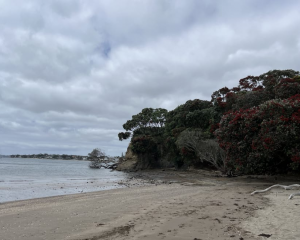Debate is growing in New Zealand over a proposed law banning gang members from wearing their insignia in the town of Wanganui.
After passing its first reading in New Zealand's Parliament earlier this year by a vote of 106-13, the proposed law is now being considered by a committee.
There are thought to be at least 3500 so-called "patched" gang members in New Zealand, who can often be seen wearing tattoos or clothing adorned with gang emblems.
Wanganui, on the North Island, has been identified as a hotbed for gang crimes and last year a two-year-old girl in the town was caught in the middle of gang warfare.
She was allegedly murdered in her home during a feud between the two largest gangs in the country - the Mongrel Mob and Black Power.
Radio personality and Wanganui Mayor Michael Laws has championed the proposed law, which was endorsed by about 65 percent of residents last year.
"Gangs are petty terrorists and they blight literally hundreds of communities throughout our country," Mr Laws said in a statement today.
Local MP Chester Borrows, from the main opposition National Party, brought the matter before the New Zealand parliament for endorsement.
Although the council could create a local by-law, it needed the backing of parliament because of concerns the new law could breach New Zealand's Bill of Rights.
The new bill would ban the display of gang regalia, including patches, gang colours, and even some tattoos, in public in Wanganui.
Mr Borrows told AAP he thought the bill would ultimately be passed into law, despite the concerns of civil liberty advocates.
"Intimidating people is a breach of their civil liberties and I am more interested in protecting the innocent than protecting those that have offended against the law," Mr Borrows said.
He said although the law would encompass people wearing gang tattoos in public, he expected police to take a commonsense approach and only arrest those who were threatening.
The ruling Labour Party backed the first vote in Parliament, but a spokesman for Police Minister Annette King said a ban on patches may not be the solution to the problem of gangs.
"We were quite happy for it to go to select committee, for the ideas to be debated, but that doesn't mean in the end we will vote to ban gang patches," he said.
"We just think that a simple answer of banning gang patches is not the answer."
Meanwhile Auckland's former top gang detective Cam Stokes told the New Zealand Herald the ban would be ineffective and result in police being attacked.
"Gang members are unlikely to surrender their 'colours' lightly," he said.












